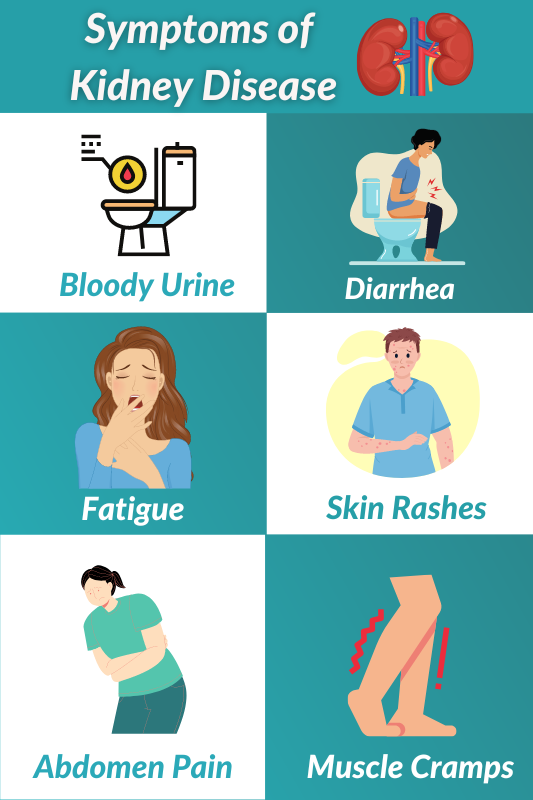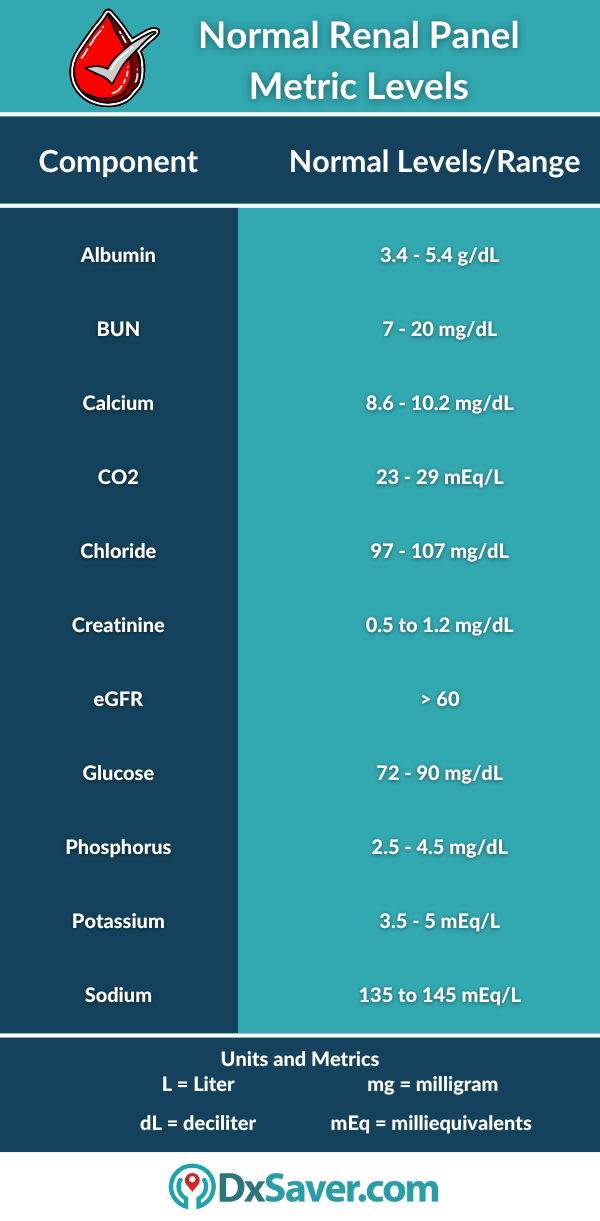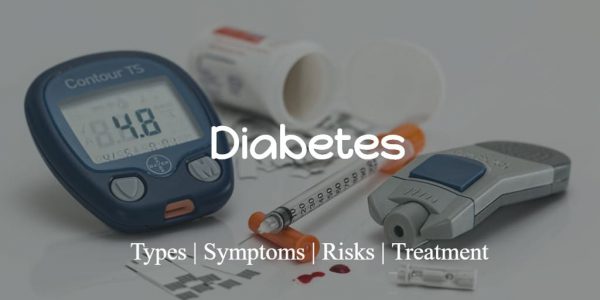
Kidney function tests cost/Renal panel test cost ranges between $39 to $50. According to the National Kidney Foundation, an estimated number of 37 million people in the U.S. are affected by chronic kidney diseases and every 1 in 3 adults is at risk of getting kidney disease. Kidney disease is the 9th leading cause of death in the United States. As early-stage kidney diseases do not show any signs or symptoms, we highly recommend you to get tested for renal panel tests at least once a year.
The article below covers all the significant topics of renal panel blood tests like renal panel test cost, tests included in the panel, the importance of kidneys, normal range, procedure, preparation, and how to get tested for renal tests.
- Kidney function tests cost (Renal function panel)
- What is a renal panel?
- Why are the kidney function tests important?
- What are the causes of kidney disease?
- Signs and symptoms of Kidney disease
- What are the tests included in the renal panel?
- The normal range of renal panel
- How are the kidney function panel tests performed?
- Is there any preparation required before the test?
- Are there any risks in the renal function tests?
- What does the test result interpret?
- What is the treatment for kidney disease?
- How to improve kidney function?
- Diets for kidney disease
- Foods to avoid with kidney disease
- Provider Locations
For our readers, who are more interested in knowing the cost of renal function panel beforehand, we would like to begin with that section.
How much do the kidney function tests cost?
Renal panel or kidney function tests cost ranges between $49 and $50 in different labs and facilities across the U.S. The panel for kidney function tests cost depends on the number of tests included in the panel.
No prior appointment is required. Compare the price, order your test online and visit the nearest lab during lab business hours. Complete the procedure and get the results in your email in 2 to 3 business days.
The following table shows kidney function tests cost (Renal panel) at 2 of our partner laboratories (CLIA – Certified) network located across the U.S.
Name of our Partner Labs | Book Online |
HealthLabs
| Offer Price$49 |
Personal Testing Lab
| Offer Price$50 |
Kidney function tests cost with insurance
Many health insurance policies in the U.S. do not cover the cost of the renal function panel. They might cover the cost only when it is done as a part of the preventative health check-up. However, the coverage offered by private health insurance policies and national health insurance programs like Medicare and Medicaid varies widely. So we recommend you to check the coverage of your plan with your insurance company.
Our renal panel testing providers do not accept any kind of health insurance plan. But, if the insurance company accepts to reimburse the cost, they can provide you with an itemized receipt containing all the details like the name and code of the test, and the CPT code which is necessary for insurance reimbursement purposes.
What is a renal panel?
A renal panel is a group of tests performed together to evaluate the overall functioning of the kidney and to detect the causes of kidney dysfunction. These tests help to diagnose kidney diseases by measuring the levels of various substances such as minerals, electrolytes, proteins, and glucose in the blood. If you have been diagnosed with kidney disease earlier, this test will be performed at regular intervals to monitor your kidney condition and to evaluate the effectiveness of the undergoing treatment.
The renal panel is also known as the “Kidney panel” or “Kidney function panel”.
Why are kidney function tests important?
Kidney function tests are very important as they help the physician to diagnose and manage kidney diseases. The kidney is one of the most important organs of our body. Two kidneys are bean-shaped and placed in the upper abdominal cavity, on each side of the spine. They might be small but they play a very important role in managing the overall health condition. Some of the major roles of the kidney are explained below.
- Kidneys help the body to pass the waste as urine.
- They act as a filter extracting all the unwanted toxic substances and waste materials from the food and medications.
- They help in maintaining the overall fluid balance in the body.
- Kidneys help in regulating blood pressure by maintaining the proper levels of electrolytes such as potassium, sodium, and chloride.
- When the kidneys do not get enough oxygen, it stimulates the bone marrow to produce a hormone called “erythropoietin”. This hormone helps in producing more oxygen-carrying red blood cells.
- Kidneys maintain the pH levels in the body that are responsible for the acid regulation.
- They also help in promoting bone health as bones need vitamin D to absorb calcium and the kidneys are important for the production of vitamin D.
What are the causes of kidney disease?
Diabetes and high levels of glucose content in the bloodstream cause kidney function to slow down. Inadequate blood flow to the kidneys or taking drugs that can have an adverse effect on the kidney can also be one of the causes of kidney disease. Some of the major causes of acute kidney problems/diseases include
- Heavy injury causing severe blood loss, such as accidents
- Too much of protein intake
- Being Dehydrated
- Enlarged prostate which blocks urine flow (Common in old men)
- Consuming certain drugs/toxins that damage the kidney
- Pregnancy complications like eclampsia
Symptoms of kidney disease
Your physician might recommend Kidney function tests if you experience the following symptoms of kidney disease.
- High blood pressure
- Blood in the urine
- Painful urination
- Difficult to urinate
- Frequent urges to urinate
- Swelling in the hands and feet
- Pain in the abdomen
- Itchy skin
- Diarrhea
- Fatigue
- Poor appetite
- Muscle cramps
People with the following conditions should consider getting the renal function tests done at regular intervals.
- Diabetes
- Family history of kidney disease
- Kidney stones
- Cardiovascular diseases
- Enlarged prostate
- Heart failure

What are the kidney function tests included in this panel?
The following are the tests included in the renal panel.
1. BUN or Blood Urea Nitrogen
BUN measures the amount of nitrogen in the blood that comes from urea, a waste product. The higher levels of BUN indicate poor functioning of the kidneys.
2. Albumin
Albumin is one of the major types of protein produced by the liver. This protein prevents the fluid in the blood from leaking into other tissues. Abnormal levels of albumin indicate a problem in the liver or kidneys.
3. Creatinine
Creatinine is a waste product that comes from the body muscles. Abnormal creatinine levels indicate the improper functioning of the kidneys.
4. Estimated Glomerular Filtration Rate (eGFR)
eGFR is an estimated measurement based on the age, race, sex, and creatinine levels. This measure tells how well the kidneys are functioning. An eGFR below 60 indicates that the kidneys are not functioning properly and an eGFR below 50 indicates kidney failure.
5. BUN to creatinine ratio
BUN to creatinine ratio is calculated based on the BUN levels and creatinine levels. The ratio of BUN to creatinine is usually between 10:1 and 20:1. An increase in the ratio indicates a decrease in the blood flow to the kidneys.
6. Calcium
Calcium is a very important mineral necessary for the building of bones, maintaining bone health and helping the blood to clot. Higher calcium levels can create kidney stones.
7. Carbon dioxide
The lungs and kidneys balance the level of carbon dioxide in the blood. Higher levels of carbon dioxide can help your physician to diagnose kidney disease.
8. Chloride
Chloride is one of the important electrolytes that helps in maintaining the proper blood volume, proper blood pressure, and the balance of acids and fluids in the body. Higher levels of chloride indicate that the kidneys are not removing enough acid.
9. Phosphorus
Phosphorus helps in the formation of bones and teeth. The kidneys excrete the extra phosphorus in the blood. If the phosphorus levels are higher in the blood, it indicates that the kidneys are not able to excrete the phosphorus.
10. Potassium
Potassium is a mineral and an electrolyte that helps in regulating fluid balance, nerve signals, and muscle contractions. Excess levels of potassium are excreted by the kidney. High and low potassium levels indicate kidney disease.
11. Sodium
Sodium is an essential electrolyte that controls the fluid balance in and around the cells. High sodium levels indicate kidney disease as the excess levels of sodium are not excreted by the kidney.
12. Glucose
Abnormal levels of glucose in the blood can indicate glycosuria. Glycosuria is the excretion of glucose into the urine. This condition occurs when the renal tubules fail to absorb all the glucose. Higher levels of glucose also indicate diabetes which ultimately results in kidney failure.
The normal range of kidney function test (Renal panel)
The normal levels of all the tests included in the kidney function test panel are given below.
How are the kidney function panel tests performed?
Renal panel tests are done using a blood sample. During the blood test, a lab technician or a phlebotomist will cleanse the area to be injected with an antiseptic and put an elastic band around the upper arm to make the vein visible and swell with blood. Then, he/she will inject a needle and draw a sample of blood in a test tube. After the blood is drawn, he will ask you to apply pressure on the injected area with a cotton ball to stop bleeding. The collected blood sample is then sent to the lab for analysis.
It takes less than 5 to 10 minutes to perform this test.
Is there any preparation required before the test?
Renal function tests require overnight fasting. Your physician will ask you to fast for 8 to 12 hours (no food, only water) before the test. Other than fasting, no special preparation is required.
Are there any risks in the renal function tests?
There are no possible risks or complications in taking renal function tests. You may feel dizziness, slight pain, or bruise in the injected area for a very little period.
What do the kidney function tests results interpret?
Renal panel tests are not a definitive diagnostic test. They only indicate the possibility of kidney damage or disease. So some follow-up tests are required based on the test results to confirm the diagnosis. Either of the following tests is ordered for further evaluation.
- CT scan whole abdomen (with or without contrast)
- Ultrasound whole abdomen
- Ultrasound KUB (Kidney, Ureter, and Bladder)
- CT scan KUB
- MRCP (Magnetic resonance cholangiopancreatography)
What is the treatment for kidney disease?
Though, chronic kidney disease (CKD) has no cure. Treatment for chronic kidney disease is focused on helping control signs and symptoms, slow the progression of the disease, and reduce complications. When the kidneys become ruptured heavily, then you are in the end stage of the kidney disease, the only treatment is a kidney transplant or dialysis.
How to improve kidney function?
When you feel that your kidney is functioning low and experiencing symptoms of kidney disease, you may need to change your diet to improve kidney function and to prevent kidney failure or chronic kidney disease (CKD). These changes may include, a low-protein diet, a low-salt/low-fat diet, and limiting phosphorous, potassium, & other electrolytes.
- Drinking plenty of water and staying hydrated will help in proper kidney function
- Take a healthy diet, avoid junk foods
- Control your glucose level if you have diabetes.
- Maintain healthy blood pressure.
- Limit salt intake in your food.
- Work out or take a walk for at least 30 minutes every day.
- Keep a healthy weight & be fit
- Do not smoke or use tobacco
- Limit alcohol consumption
Diets for kidney disease
- Apples
- Blueberries
- Cabbage
- Cauliflower
- Cranberries
- Garlic
- Onions
- Red bell peppers
Thus, plant-based diets are more important than taking processed foods or meat to control and reverse kidney damage.
Foods to avoid with kidney disease
Dairy products should be limited as they are rich in phosphorus, potassium, and protein, which should be minimal for a renal diet. Although milk has high calcium content, its phosphorus content tends to weaken the bones in people with kidney disease.
- Avocado
- Bananas
- Canned food
- Dark-colored soda
- Dairy product
- Rice
- Processed meat
- Pickle & olives
- Potato
- Tomato
- Whole wheat grain
Alcohol must be strictly avoided in the case of end-stage, i.e. chronic kidney disease (CKD).
Provider Locations
Renal panel tests can be done in any of the following locations across the U.S. by visiting the nearest lab. To know the cost of renal panel tests, refer to the first section of the article.
- Alabama
- Arizona
- Arkansas
- California
- Colorado
- Connecticut
- Delaware
- Florida
- Hawaii
- Georgia
- Idaho
- Illinois
- Indiana
- Iowa
- Kansas
- Kentucky
- Louisiana
- Maine
- Michigan
- Minnesota
- Mississippi
- Missouri
- Montana
- Nebraska
- Nevada
- New Hampshire
- New Mexico
- North Carolina
- North Dakota
- Oklahoma
- Oregon
- Pennsylvania
- Puerto Rico
- South Carolina
- South Dakota
- Tennessee
- Texas
- Utah
- Vermont
- Virginia
- Washington
- West Virginia
- Wisconsin
- Wyoming
Frequently Asked Questions
Will insurance cover my testing cost?
No, insurance will not be covered in the billing. However, they will provide you a receipt for insurance reimbursement purposes.
How should I book my appointment?
You can choose the most suitable provider from above and make an appointment by following the instructions mentioned by them.
Can I cancel my lab test order?
Yes, you can cancel your lab test order anytime before your testing. A refund will be initiated after deducting the cancellation fee. However, cancellation is at the discretion of the provider.
Do the providers offer result interpretations?
Yes, a few providers may provide doctor consultation who will take you through the results and provide clarification if needed.
How do I receive my report?
To ensure your privacy, the test report will be mailed to you by the provider.
Other topics you may be interested in:-
- How Much Does At-Home COVID-19 Home Test Kit Cost in the U.S?
- What is Herpes? Symptoms of Genital Herpes in Women
- How much does a urine culture cost?
- Symptoms of Gluten Intolerance
- Is Bruising a Symptom of STD?
- At-Home Chlamydia Testing Cost in the U.S.
- How much does the liver function test cost?
- What are the different types of diabetes?
- How much does the vitamin B12 test cost?
- How much does the vitamin D test cost?
- Symptoms of Chlamydia STD in Men & Women
- Celiac Disease Test Cost in the U.S.
- LDH Hormone Normal Levels
- Why Do I Have Vaginal Burning Sensation?
- What is the cost of the cholesterol test?
- How much does the cortisol test cost?
- Types of STDs That Cause Skin Rashes on Genitals and Body
- Oral STDs: Names, Symptoms, Treatment and Testing Cost
- Parkinson’s Disease Symptoms, Stages, Diagnosis & Treatment
- Causes of Penile Rashes and Other STD Symptoms in Men








